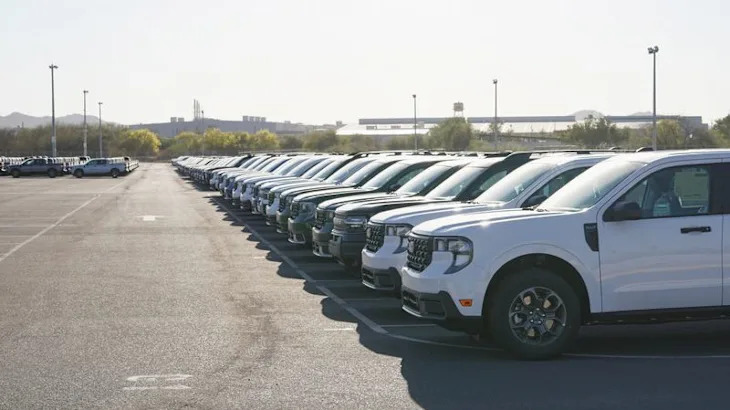
Investors react as Trump auto tariffs rattle markets
(Reuters) -Automaker stocks around the world slumped on Thursday after the latest round of U.S. tariffs were targeted at the sector.
U.S. President Donald Trump said late on Wednesday the United States will effectively charge a 25% tariff on all cars not made in the country and that the new duties on cars and light trucks imported into the United States will be permanent.
Volkswagen, BMW, Mercedes-Benz, Porsche and Continental lost 4.5 billion euros ($4.84 billion) in combined market value on Thursday.
HOWARD WOODWARD, BOND PORTFOLIO MANAGER, T. ROWE PRICE, LONDON:
"While the market was somewhat prepared for additional tariffs, the timing and magnitude were unexpected. This exacerbates already weak European consumer sentiment for high-ticket cars. We anticipate European auto margins will remain under pressure throughout this year and likely into 2026.
"Not all European auto bonds will be equally affected. German manufacturers, with their significant reliance on U.S. exports, are expected to face more scrutiny from traders. Conversely, companies with less exposure to the U.S. market may present investment opportunities. We foresee increased divergence in the performance of individual European auto bonds."
MORITZ KRONENBERGER, PORTFOLIO MANAGER, UNION INVESTMENT, FRANKFURT:
"The announced tariffs on vehicles imported to the USA are a disaster for the entire sector. The belief that prices could be passed on and would be unconditionally accepted by consumers is naive."
"Car prices in the USA will rise - only cars manufactured in the USA can be kept somewhat stable - but the entire supply chain will be affected by the tariff disruption.
"Ultimately, this will lead to declining volumes of new cars, inefficiencies in factory utilization, and significantly lower margins, free cash flows, and ultimately earnings."
KYLE RODDA, SENIOR FINANCIAL MARKET ANALYST, CAPITAL.COM, MELBOURNE:
"There are a lot of layers here. However, I think the big concern is that not only will these tariffs be disruptive and economically harmful, but it indicates that the Trump administration's shake-up of global trade won't necessarily end with next week's April 2nd announcement of reciprocal tariffs, as previously hoped. This potentially drags out trade uncertainty even longer and raises the question of how radical a change to the global trade order is Trump trying to bring about."
JASON CHAN, SENIOR INVESTMENT STRATEGIST, BANK OF EAST ASIA, HONG KONG:
"Trump's auto tariff probably has a bigger impact on the EU compared with Chinese carmakers. The levies on Chinese autos have been hiked up already, and they have relatively limited exposure to the U.S. market anyway. Also, his comments about the TikTok deal are giving people hope that there's room for negotiations.